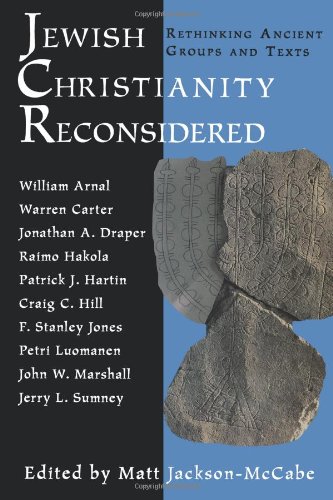Matthew 27:46,50 One Soldier’s Death
And about the ninth hour Jesus cried out with a loud voice, saying, “Eli, Eli, lama sabachthani?” that is, “My God, My God, why have You forsaken Me?” … And Jesus cried out again with a loud voice, and yielded up His spirit.
//A casualty in the war for our freedom.
Have a blessed Memorial Day.

Genesis 3:6, Augustine’s Original Sin and the Evil of Sex
And when the woman saw that the tree was good for food, and that it was pleasant to the eyes, and a tree to be desired to make one wise, she took of the fruit thereof, and did eat, and gave also unto her husband with her; and he did eat.
//St. Augustine was a profound thinker, but he did have an odd hang-up. It was that three-letter word: sex. Have you ever wondered how the most influential theologian of all time justified the doctrine of Original Sin? His logic works like this:
Adam and Eve were rational beings who strayed to irrationality. Where once they were in control of their emotions and passions, that gave way as they ate the apple and learned a new trick: how to make children. Thus, by cooperating in irrationality, mankind was born.
Now, there is no sexual desire accompanying the birth of a child; it comes months beforehand. Indeed, there can be sexual desire even when no child is wanted. Yet arousal is required, which Augustine considered “disordered passion,” meaning the body and emotions were outside the proper control of the mind. It is in this state of “disordered passion” that conception occurs, and children bear the marks of their conception. Thus, every child is born with the mark of sin, even though she committed no sin on her own.
So children do not inherit sinfulness from their parents according to Augustine; they are born in sin. In this way, “original” refers not only to the very first sin in the Garden of Eden, which is then passed on to all future generations, but to the sin in which conception occurs. The sin is “original” in that is the first sin of anyone’s new life. The child cannot help but grow up in sin, a slave to these “disordered passions.” Every facet of our lives is disordered; hence the doctrine of “total depravity.”
Here is where I get lost in the argument. God said if Adam and Eve disobeyed, they would die. If Adam and Eve’s eyes were opened to evil, and if by this evil they began to procreate, doesn’t this mean it was actually their sin which guaranteed everlasting life?

Acts 18:23, Phrygia and the New Jerusalem
And after he had spent some time there, he departed, and went over all the country of Galatia and Phrygia in order, strengthening all the disciples.
//Phrygia is a region in modern-day Turkey. It’s mentioned three times in the book of Acts, telling of how the Gospel was spread there. But do you know its true Christian claim to fame?
It starts with this verse in Revelation:
And I John saw the holy city, new Jerusalem, coming down from God out of heaven, prepared as a bride adorned for her husband. –Revelation 21:2
In the second century, a man named Montanus started a new movement. He believed the age of the Holy Spirit had dawned, and that it dwelt in him bodily. Thus, the end of the world was at hand, and it was time for the New Jerusalem to descend. (Revelation teaches that the New Jerusalem floats down out of heaven to land on earth).
Montanus hailed from Phrygia, and insisted that’s where it was coming down. While Revelation hints that the New Jerusalem will land on Mount Zion, Montanus though it was headed for Turkey, the region of Phrygia, in a small village called Papuza.
While highly influential (you have probably heard of Tertullian, who was originally a Montanist), Montanus’ views couldn’t break into mainstream Christianity. He was excommunicated by the church in Phrygia. The New Jerusalem must have found a different place to locate.

Book Excerpt: Revelation: The Way It Happened
Then I looked and heard the voice of many angels, numbering thousands upon thousands, and ten thousand times ten thousand. They encircled the throne and the living creatures and the elders.In a loud voice they sang:
“Worthy is the Lamb, who was slain,
to receive power and wealth and wisdom and strength
and honor and glory and praise!”
This echoes Daniel 7:10: Thousands upon thousands attended him; ten thousand times ten thousand stood before him. The court was seated, and the books were opened. But don’t look for wings and halos among this multitude. Revelation, like Daniel, often portrays believers as angels, and in this verse these “angels” are merely people.
Angels in Revelation can represent many things. When John writes to the elders of the churches in chapters 2 and 3 of Revelation, he calls them angels, but he refers to people. John, at least twice, presents Jesus as an angel (verses 10:1 and 14:14). In verse 21:12, twelve “angels” stand guard over the gates of the New Jerusalem; in Isaiah 62:6, these watchmen on the walls are prophets, not angels. Interestingly, Revelation is also the earliest Jewish or Christian literature in which angels fly.
With this flexible definition of Revelation’s “angels” in mind, we see now that the throne-room scene in chapters 4 and 5 of Revelation has been leading us to this moment at the end of time, when all of creation joins in praise, like scanning the last page of the book first. In the next verse, even the creatures on earth join in the praise. Remember this moment, because we will return to it time and again throughout the book of Revelation.
–Revelation: The Way It Happened, 2010, by Lee Harmon

John 4:6, Jonah and the Gourd
And the LORD God prepared a gourd, and made it to come up over Jonah, that it might be a shadow over his head, to deliver him from his grief. So Jonah was exceeding glad of the gourd.
//Ever try to take refuge in the shade of the gourd? This must be a monster gourd, right?
It was Jerome in the fourth century who translated the Bible into Latin–the version we call the Vulgate–and it was he who decided the plant that sheltered Jonah was a gourd. Previous to this, it was an ivy. The truth is, nobody, to this day, really knows what type of plant sheltered Jonah in this story. Many scholars believe it was a castor bean plant.
But a gourd? This was too much. For many people, calling the ivy a gourd was scandalous. They ridiculed Jerome, saying he must like gourds better than ivy so that he has a place to stash away his drink!
But the idea of a gourd stuck, and made it into the King James Version. Sadly, most of today’s translations duck the controversy by calling it a “leafy plant.”

Book review: Jewish Christianity Reconsidered
★★★★★
by Matt Jackson-McCabe
Ten scholars present papers (now seven years old) about early Jewish Christians, their writings and practices.
It’s a slippery topic. All scholars recognize the ambiguity in the term “Jewish Christian,” which makes classification difficult. Understanding that Christianity is an offshoot of Judaism, where exactly do you draw the line between Judaism and Christianity? The term usually refers to Jesus-followers who continue Jewish practices, such as Sabbath observance, circumcision, and dietary restrictions. But what makes a person more of a “Jewish Christian” (speaking of practice, not nationality) than a Christianized Jew? It’s a sliding scale without full consensus, but this book examines early Christian groups and certain Christian texts which lean toward Judaism; enough to be classified as “Jewish Christianity.” These include:
Groups: The Jerusalem church; the “Christ-believing Jews” who opposed Paul; the Ebionites & Nazarenes; and the Johannine Community
Texts: Q, Matthew, James, Revelation, the Didache, and the Pseudo-Clementines
The examination of the epistle of James was the most interesting to me. You may find the writing a bit on the scholarly side unless this is a topic which fascinates you. For me, it’s more than fascinating; it’s essential to understanding our Christian roots. This is because in my own studies, I have come to believe that Jewish Christians (particularly the Ebionites) trace their heritage back to the church leadership in Jerusalem, headed by the inner apostles themselves. This is not to say that Jewish Christianity didn’t evolve … it surely did, as did other strands of Christianity … but its roots are just as strongly anchored in the earliest Jesus traditions as the Gentile religion we’re more familiar with.
I found this an essential collection for those who want to keep their finger on the pulse of early Christian tradition. Definitely recommended.
Fortress Press, © 2007, 389 pages
ISBN: 978-0-8006-3865-8

Proverbs 15:3, The Biblical God
The eyes of the LORD are everywhere, keeping watch on the wicked and the good.
//“The Biblical God” is is a phrase that’s starting to get on my nerves. I usually hear it in context of someone claiming my idea of God differs from the Bible’s description. But there is no single “Biblical God.” Opinions about God change from book to book in the Bible. The God of Genesis is different from the God of the prophets, which is different from the God of the Writings, which is different from the God of the Synoptic Gospels, which is different from the God of Paul or the Gospel of John. When we mash all of these opinions together and try to come up with a composite description of God, all we accomplish is to misrepresent all of the Bible’s authors.
Think God is omniscient? See http://www.dubiousdisciple.com/2011/11/proverbs-153-dont-make-me-come-down-there.html
Think God is jealous? See http://www.dubiousdisciple.com/2012/02/exodus-205-a-jealous-god.html
Think God is merciful? See http://www.dubiousdisciple.com/2011/12/psalm-305-gods-anger.html
Think God hates evil? See http://www.dubiousdisciple.com/2012/02/habakkuk-113-does-god-hate-evil.html
Pretty much any attribute of God you name, you can find a Bible author who disagrees. We cannot speak of “the Biblical God” but of one of the “Biblical Gods.” That these varying Bible opinions have been merged into one rather universal Church opinion is only a symptom of our very human desire to pin God down.

Revelation 22:12, Behold, I Come Suddenly?
Behold, I come quickly, and my reward is with me, to give every man according as his work shall be.
//I just finished reading another book which tried to pull Revelation out of its first-century setting by suggesting an odd translation of the promise in today’s verse. The phrase “Behold, I come quickly” appears word-for-word three times in Revelation, and there are a number of other places where Jesus affirms his coming without delay. Unless we greatly misinterpret the words (particularly the Greek word tachy), there is simply no way that Jesus was saying it would be 2,000 years before he came.
Still, some readers, noting that the return of Christ didn’t happen the way they expected, suggest an alternative reading. They suggest that the word “quickly” should be replaced by “suddenly,” meaning unexpected and instantaneous. But this simply isn’t the way the word is used anywhere else in the Bible. Ignoring, for now, all of Revelation’s promises of immediacy and concentrating on just the Greek word tachy, let’s note all the other verses where the Bible’s writers used this word:
Agree with thine adversary quickly [tachy], whiles thou art in the way with him; –Matthew 5:25
And go quickly [tachy], and tell his disciples that he is risen from the dead; –Matthew 28:7
And they departed quickly [tachy] from the sepulchre with fear and great joy; –Matthew 28:8
There is no man which shall do a miracle in my name, that can lightly [tachy] speak evil of me. –Mark 9:39
And they went out quickly [tachy], and fled from the sepulchre; –Mark 16:8
As soon as she heard that, she arose quickly [tachy], and came unto him. –John 11:29
Did you have any luck replacing the word “quickly” (tachy) with “about 2,000 years later?”

Revelation 14:4, Who are the Firstfruits?
These were redeemed from among men, being the firstfruits unto God and to the Lamb.
//Revelation tells of 144,000 faithful people who stand on Mount Zion, singing praises to God. It is said they were redeemed from the earth. They are said to be the “firstfruits.” But who are they?
This question comes up often in the forums I participate in online. Many think this gathering of the firstfruits is still in our future; but that wouldn’t make them first, would it?
The Old Testament law tells us that in the new harvest, the firstfruits are given to God. It means the very first of the crop each year. The firstfruits among Christians would therefore be the first ones redeemed.
This is the understanding provided by Paul as well. In 1 Corinthians 16:15, he names the household of Stephanas as the firstfruits of Achaia. Likewise, in Romans 16:5, Paul indicates that Epaenetus is the firstfruits of Asia Minor. Compare these two translations of the same verse:
Likewise greet the church that is in their house. Salute my wellbeloved Epaenetus, who is the firstfruits of Achaia unto Christ. –KJV
Greet also the church that meets at their house. Greet my dear friend Epenetus, who was the first convert to Christ in the province of Asia. –NIV
So “firstfruits” means “first Christians to convert” in this example. There is no reason to believe Revelation doesn’t use the word in the same way.

Book review: Disciples: How Jewish Christianity Shaped Jesus and Shattered the Church
by Keith Akers
★★★★★
Wow. I wish I had written this book. Speculative but convincingly argued, it strikes a perfect balance between reason and wonder, as it traces the evolution and demise of Jewish Christianity.
I have both curiosity and sympathy for the Ebionites, that early Jewish Christian sect which probably stemmed from the first Christians in Jerusalem, headed by Jesus’ brother James. Their disagreements with Paul, their emphasis on simplicity, and their primitive Christology have always intrigued me. But Akers pulls no punches in digging up the truth about the Ebionites and others. Some of their doctrine entices me, and some does not. For one thing, by the time you finish this book you may turn into a vegetarian … and life without bacon? No thanks, Keith.
In my studied opinion, Akers oversteps the bounds of reason only once–when he discusses the Talpiot tomb (the “Jesus tomb”) and its implications–but the thing is, his scholarship is so precise elsewhere that it makes me want to take a hard look at even this and see if there is really something to it! If it sounds like I’m gushing praise, it’s because this may be the most intriguing book I’ve read since discovering Paul Anderson’s Johannine studies. In a word: Disciples is simply brilliant, very highly recommended.
My one complaint is that it suffers from a scarcity of references, having no reference section or footnotes. The in-text references are not plentiful enough.
Apocryphile Press, © 2013, 298 pages
ISBN: 978-1-937002-50-3

















 354 Circles
354 Circles
 603 Goodreads Friends & Fans
603 Goodreads Friends & Fans

 Hello! I'm an author, historical Jesus scholar, book reviewer, and liberal Christian, which means I appreciate and attempt to exercise the humanitarian teachings of Jesus without getting hung up on any particular supernatural or religious beliefs.
The Bible is a magnificent book that has inspired and spiritually fed generations for thousands of years, and each new century seems to bring a deeper understanding of life’s purpose. This is true of not only Christianity; through the years, our age-old religions are slowly transforming from superstitious rituals into humanitarian philosophies. In short, we are growing up, and I am thrilled to be riding the wave.
I avidly read all thought-provoking religion titles. New authors: I'd love to read and review your book!
Hello! I'm an author, historical Jesus scholar, book reviewer, and liberal Christian, which means I appreciate and attempt to exercise the humanitarian teachings of Jesus without getting hung up on any particular supernatural or religious beliefs.
The Bible is a magnificent book that has inspired and spiritually fed generations for thousands of years, and each new century seems to bring a deeper understanding of life’s purpose. This is true of not only Christianity; through the years, our age-old religions are slowly transforming from superstitious rituals into humanitarian philosophies. In short, we are growing up, and I am thrilled to be riding the wave.
I avidly read all thought-provoking religion titles. New authors: I'd love to read and review your book!
 Hi! While Lee writes the articles and reviews the books, I edit, organize, and maintain the blog. The views expressed here are Lee's but I'm his biggest supporter! :-)
Hi! While Lee writes the articles and reviews the books, I edit, organize, and maintain the blog. The views expressed here are Lee's but I'm his biggest supporter! :-)
Connect With Me!